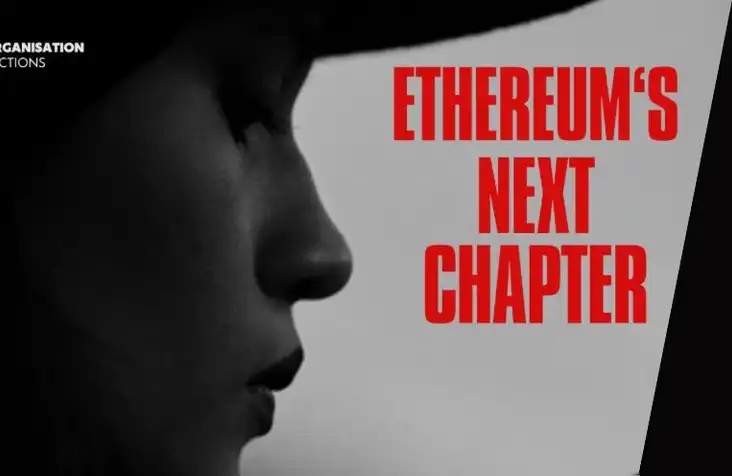If the SEC approves an Ethereum spot ETF, will there be more altcoin ETFs?
Original title: If SEC approves ether ETF, will it approve altcoin ETFs?
Original author: Protos
Original translation: Ismay, BlockBeats
Editor's note: The SEC has communicated with trading platforms and ETF applicants regarding the 19b-4 rule change request, which indicates that the possibility of Ethereum spot ETF approval has greatly increased. At the same time, altcoin investors speculate that more tokens may also be approved for spot ETFs, but currently only futures contracts for Bitcoin and Ethereum are listed on the Chicago Mercantile Exchange (CME), so this will take longer to consider.
With the possibility of the SEC approving a spot Ethereum ETF suddenly rising, altcoin investors are speculating that more tokens may be approved.
In fact, just this morning, WisdomTree received approval from the UK’s Financial Conduct Authority to list its 100% physically-backed Ethereum ETP on the London Stock Exchange as early as May 28, although the product will not be available for retail investors.
Ethereum’s bullish momentum, which has risen 29% this week alone, could spread to other crypto assets.
On Monday, Bloomberg ETF analysts James Seyffart and Eric Balchunas announced that the SEC has sent a request for a 19b-4 exchange rule change to at least one trading platform and one ETF applicant.
The Wall Street Journal confirmed the news, while CoinDesk also cited three people familiar with the matter. Around the same time, Coinbase’s David Han wrote a report without citing the 19b-4 news, adjusting his outlook for an Ethereum spot ETF upward.
Barron's said that according to people familiar with the matter, SEC staff told trading platforms that "they are inclined to approve these plans."
As early as tomorrow, the SEC may approve the so-called 19b-4 filing, which, together with the related S-1 filing due in a few weeks, may lead to investment manager VanEck finally listing an Ethereum ETF spot.
Other ETF sponsors have also filed 19b-4 applications for spot ether ETFs with the SEC, including Fidelity, 21Shares, Invesco/Galaxy, and Franklin Templeton. VanEck requested an early response date of tomorrow.
Will an Ethereum spot ETF lead to other altcoin ETFs?
Of course, Ethereum is just one of many altcoins traded on U.S. stock exchanges through trusts.
There are more than a dozen publicly traded trusts in the U.S. that hold alternative crypto assets: Litecoin (LTC), Chainlink (LINK), Basic Attention Token (BAT), Bitcoin Cash (BCH), Decentraland (MANA), Ethereum Classic (ETC), Filecoin (FIL), Polkadot (DOT), Horizon (ZEN), Stellar Lumens (XLM), Livepeer (LPT), Zcash (ZEC), and Solana (SOL).
So, if the SEC approves a spot ether ETF, could it also approve other altcoin ETFs?
The logic of altcoin proponents — arguing that non-ether spot altcoin ETFs could be approved by the SEC soon after the ether spot ETF — often follows a simple argument: if the SEC allowed Grayscale to convert its Bitcoin Trust into an ETF, why would the Commission refuse to trust promoters of other crypto assets to convert them into ETFs?
For obvious reasons, this argument would likely fail if the SEC claimed that crypto assets are unregistered securities. However, the SEC does not classify all crypto assets held by U.S. public trusts as securities.
Interestingly, many crypto trusts traded on U.S. stock exchanges OTC Markets hold what the SEC explicitly designates as unregistered securities, including SOL, MANA, and FIL. Many more crypto assets are rumored to be SEC-designated unregistered securities: XLM and ZEN.
Nevertheless, some trusts traded in the U.S. OTC markets do not hold unregistered securities designated by the SEC, such as the DOT or ETC trusts. Perhaps if the SEC approves a spot Ether ETF, the commissioners might approve a spot ETF based on such potentially non-security crypto assets.
It is important to note that just because the SEC has not classified a crypto asset as an unregistered security, does not mean it is not. Congress did not require the SEC to proactively classify all assets.
Rather, the SEC simply chooses to accept or deny applications it receives on a case-by-case basis, or to take enforcement actions for illegal conduct, because it has the time, money, staff, and resources.
Commissioners’ silence does not mean no designation.
Of course, there are those who object to this logic. Unlike altcoins like DOT or ETC, only futures contracts for Bitcoin and Ethereum are listed on the Chicago Mercantile Exchange (CME). The sheer size of the CME market for ETH alone may be a reason for approving only an Ethereum spot ETF and not any other altcoins.
Ethereum Spot ETF: No Longer Clearly Rejected by the SEC?
According to Bloomberg, Barron’s, and The Wall Street Journal sources, the SEC’s Division of Trading and Markets has requested amendments to the exchange and sponsor’s joint 19b-4 form (likely VanEck). This is a bullish sign for the potential approval of a spot ether ETF, as the SEC is typically silent or uninterested if it intends to reject a 19b-4 application, according to market observers.
 Since the SEC is requesting a reapplication, its reasoning is that its interest could be a positive development.
Since the SEC is requesting a reapplication, its reasoning is that its interest could be a positive development.
Many have viewed the SEC’s stance on an ether spot ETF as overwhelmingly negative. Joe Lubin’s ConsenSys even sued the SEC, claiming that the commissioners secretly classified ether as an unregistered security.
So if the SEC is actually considering the possible approval of an ether spot ETF, it would be a notable change in tone.
Amid all this media coverage, Ethereum’s price has risen 29% over the past seven days, 17% more than Bitcoin’s 12% gain.
Form 19b-4 requires applicants to provide the information necessary for the public to understand why the SEC should change its Rule 19(b)(1) under the Securities Exchange Act of 1934. In this case, exchanges and ETF sponsors must explain why the SEC should allow ETH as the sole asset of a spot ETF.
「Original link」
Welcome to join the official BlockBeats community:
Telegram Subscription Group: https://t.me/theblockbeats
Telegram Discussion Group: https://t.me/BlockBeats_App
Official Twitter Account: https://twitter.com/BlockBeatsAsia
 Forum
Forum OPRR
OPRR Finance
Finance
 Specials
Specials
 On-chain Eco
On-chain Eco
 Entry
Entry
 Podcasts
Podcasts
 Data
Data

 Summarized by AI
Summarized by AI







